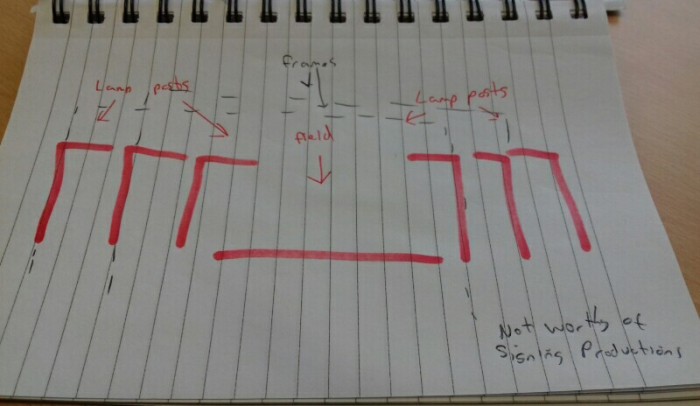
Often, when one turns on the radio for a sports’ phone in one will hear people claiming that they are ‘real fans’ and that others are not ‘real fans’, to which they then offer a wholly subjective definition and explanation of ‘real’ and why they qualify for such a term.
Whilst one, dear reader, may say, ‘wait, how can you argue about money ruining sport and how can you say if one is a real fan or not, as it is, as you yourself say, wholly subjective?’ I will conceded that, yes, the money from sport has gone to help many lives. Often in Brazil and parts of Africa, for example, the money from their sports stars in Europe will be the sole form of income for the family and to this it is a wonderful thing (and a damning indictment of the local economies, the World Bank’s regulations and equality). My argument is not with the life changing nuances of money but rather as money in the sport as a whole.
Since the advent of the Premier League in 1992, the money in the top levels of English sport have become more and more vulgar until now the costs of not being in the League overrule all other concerns, namely those of the fans’ expectations. Whilst one might, justifiably, say that to be a fan is to support your club through thick and thin (as a Leicester City fan I can say I’ve seen some pretty high highs and pretty low lows) the question comes down to definition of what the club is and how this relates to its supporters. In German football there is a 50+1 rule which means that clubs are, essentially, owned by and for the fans. Ticket prices are low and most stadiums sell out with wonderful support. Even with Bayern’s domestic dominance, the league has a high level of technical ability (just look at the German national team) and the product, football, is of a high quality. The same cannot be said of the English game. With domestic and foreign investment and ownership of the clubs the clubs have become increasingly commercial businesses which, despite the billions poured into the game by Television rights etc, charge incredibly high prices for the tickets, so much so that the average ‘fan’ is priced out of attending many, if any, games.
As the model of the clubs is a commercial business model (Arsene Wenger is an economist) one must consider the relationship between the club and its fan base as in terms of a business relationship. The club offers a product (football matches) and advertises the product with the aim of making money from secondary advertising and from ticket sales. People then see the advertisements and decide whether or not to buy into what is being offered. If they decide to then they buy their ticket. The clubs then offer extras, such as programs (although they will soon be phased out), replica shirts, key chains and so forth to maximise the profit margins. They then will also be bombarded in the ground, in the program and to and from the game by the secondary advertisers some of which they may partake in, be it a burger from a burger van or a new car and everything in between.
Let’s consider this from a different perspective. If a new film opens at the cinema it is advertised from primary and secondary sources and one has the option to go or not. One enters into the film with the understanding of a contract, that they will be entertained for the two hours or so. Even after entering the screen one is bombarded with more primary and secondary advertising to maximise profits, both to sell advertising and to make inhouse profits. Now comes the notion of definition. Is one a film customer or fan? I would say that I am a Star Wars fan but as the latest direction of the franchise (damn you, Disney!) has not reached my expectations as a fan I feel that I can criticise the product as a paying customer and opt not pay my money and give my support to commercial businesses that I no longer feel is meeting my subjective demands as a fan. This, I think, illustrates the difference between fans and customers. One might counter this by saying ‘but sport is different, silly’ but it really isn’t, it still follows the same principles. Since the English Cricket success of 2005 when it was showed on free-to-air television it was then sold to Sky. Since then participation and viewing figures has decreased so that Andrew Strauss, the director of Cricket and former captain, has proposed a new 100 ball format so that ‘mums and kids’ can understand it (although it seems the ECB (England and Wales Cricket Board) cannot) as a desperate attempt to generate new fans and obtain new customers. This, I think, offers conclusive evidence that given the influx of money in sport the fan no longer is a fan, rather is, in the eyes of the clubs, a customer and probably always has been. Sport is no different from any other business no matter what we tell ourselves (Nietzsche said that lies to others is relatively rare compared to lies to ourselves) and unless we, the people/supporters, accept this and hold them to the same standards as any other business we will continue to delude ourselves, after all, sport, as a whole, is far more interested in being a business with customers than in being a club with fans.
‘till next time





